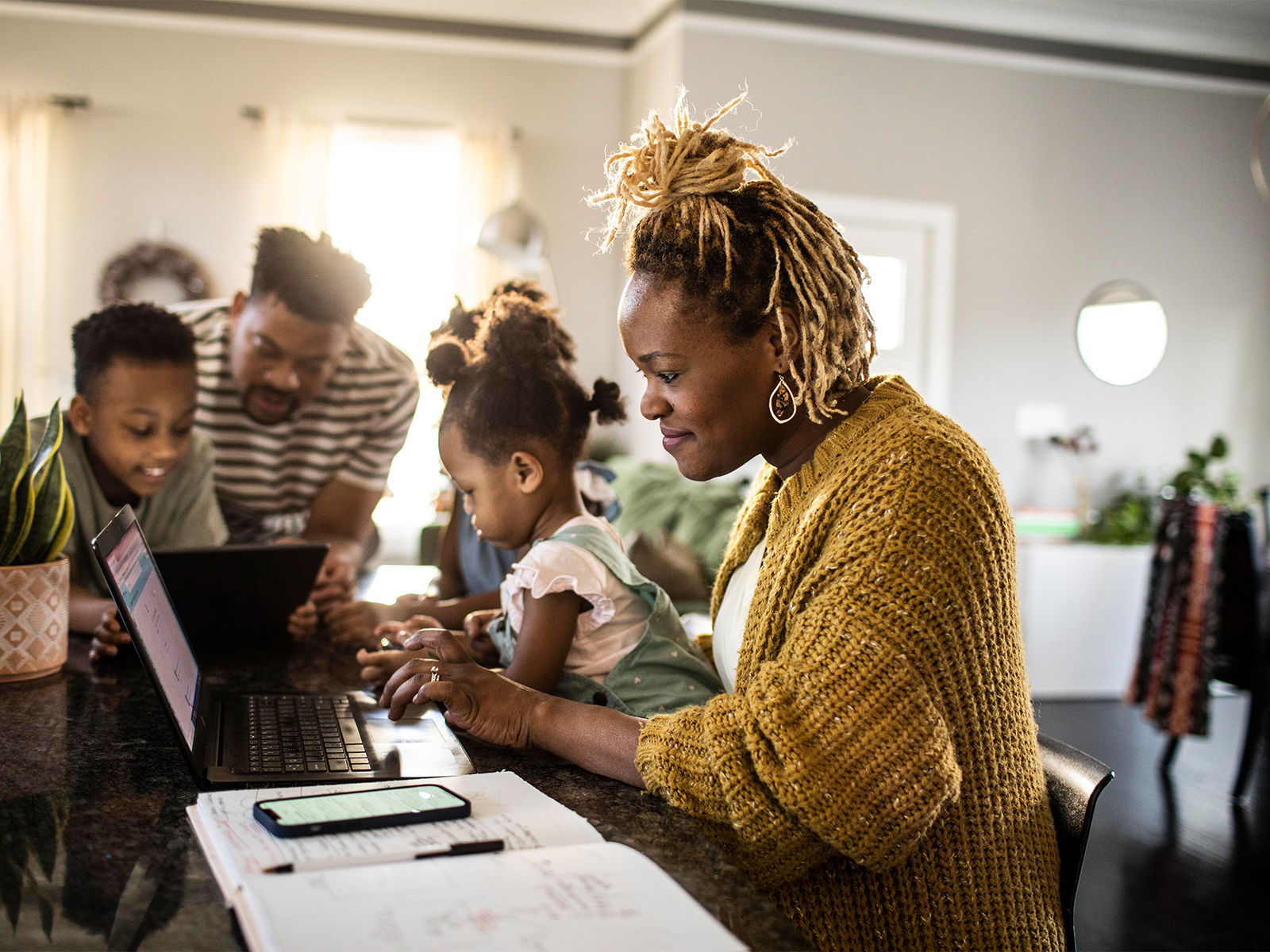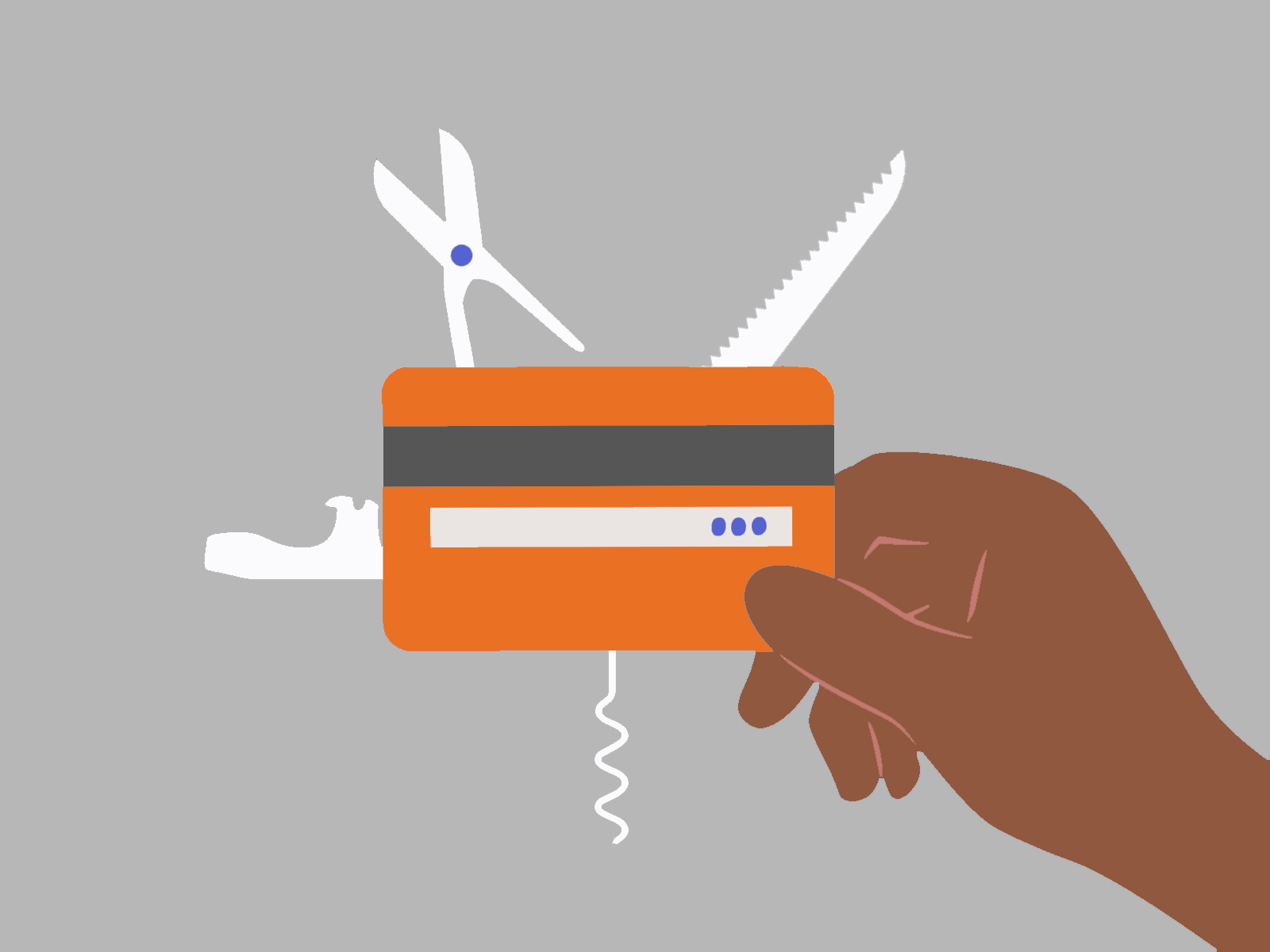Inflation deflated this family's budget. Here's how they're coping with it
Last year we took you inside two very different Canadian households, offering a window into how they spent and saved on everything from mortgages and groceries to transit and clothing.
A lot can change in a year (hello, inflation!), so we're revisiting one of those households, a family of four in Laval, Quebec, to see how their financial habits have changed.
We'll compare their monthly spending then and now, see what adjustments they've made, and what kind of money-related concerns dominate their dinnertime discussions today.
Who: Soukaina K., 32, and Patrick A., 35. Sou and Pat live with their two young boys in a three-bedroom semi-detached house in suburban Laval, Quebec. They also spend a few weekends every summer up at their cottage near Mont Tremblant.
What they do: Sou is a training and technical support coordinator at a college making $55,000 per year. Pat is a bus driver in Montreal making $80,000 per year. They both got promotions this year, so their income has increased.
What they spend in a month as a family
| 2021 | 2022 | |
| House mortgage | $1,019.39 | $1,019.39 |
| Cottage mortgage | $287.58 | $287.58 |
| Property Taxes | $205 | $205 |
| Home, cottage and car insurance | $297.89 | $297.89 |
| Gas | $300 | $420 |
| Car lease payments | $383.61 | $413.67 |
| Internet, cable and cellphones | $300 | $335 |
| Entertainment subscription services | $20.18 | $20.98 |
| Savings contributions (not including company pension plans) | $233 | $473 |
| Charities | $10 | $0 |
| Groceries | $1,000 | $1,200 |
| Eating out | $110 | $70 |
| Kids' toys, games and activities | $20 | $213.24 |
| Gym memberships (before pandemic vs today) | $68.86 | $0 |
| Daycare for their youngest | $147 | N/A |
| School fees | $150 | $405 |
| Total | $5,344.51 | $5,360.75 |
Spending changes large and small
Netflix and Amazon Prime are the family's go-to entertainment subscription services. Sou got around the increase in price of their Amazon Prime membership by switching from a monthly to a yearly subscription, which saves them $2 per month. Instead of cable TV and a landline, they use their cellphones and spend just $5 per month on IPTV Smarter Pro which gets them 128,000 channels delivered through the internet.
Sou also bought a do-it-all kitchen countertop appliance on sale for $800 (down from $2,400). It saves time and waste in preparing meals so she can make more healthy home-cooked dishes, saving more by cutting out the extra costs of pre-made meals and making the groceries they buy stretch a little further. Since the machine replaces the function of everything from their kettle to the blender, she was able to furnish the cottage with their old appliances, making it easier for them to make healthy meals when they go up north for a weekend family getaway.
Their youngest moved from daycare to preschool, which costs $180 plus $22.50 for hot meals per month for each of them. They also massively increased their spending on the kids' activities, enrolling them in jiu-jitsu ($100/month) and swimming for their eldest ($63.24/month).
They managed to offset these costs by cutting back on eating out, equipping themselves to do workouts at home instead of paying for a gym membership, and cutting down on car trips where possible to save on the rising cost of gas. That means one or two fewer trips up to the cottage and a few more family meetups on Zoom instead of in person.
Their biggest concerns with inflation and rising interest rates
Their main concern is their investments. After seeing the great short-term results of some people who chose to invest during the downturn in 2020 and 2021, they decided to invest a good amount in early 2022. However, those investments are now down 30 percent. "That makes us a little uncomfortable, for sure!" says Sou.
Some of this investment was long term, and they know that over time it should climb back up. But most of it was intended as a medium-term investment in the hopes of getting a good return fairly soon in order to renovate their cottage. "Given the current state of the markets, we've determined that the renovation will have to wait," laments Sou.
What they're going to do when their mortgage comes up for renewal
Their house mortgage is still locked in at a fixed rate until January 2025, so they're crossing their fingers that interest rates may yet come back down before then. But their cottage mortgage is up for renewal next summer. Even though this represents a much smaller proportion of their spending that could potentially change, they're still planning to have a discussion with a financial advisor about their options, including the possibility of combining the two mortgages to pay them off as one.
How they're approaching their financial future amidst all the uncertainty
Pat and Sou consult Pat's brother-in-law, a chartered professional accountant, for most of the questions and concerns they have around spending, saving and investing. This doesn't mean they always take his advice, but it helps provide external context for their financial decision making. They also maintain a financial "safety cushion," as Sou calls it, in case of unexpected hardship in the coming weeks and months. That means a small sum of money in a savings account that is strictly off limits except for use in emergencies.
How they've navigated the most difficult aspects of managing their spending and saving this year
"Times of stress tend to amplify our human nature, to spend more on comforting things, regardless of what we earn," says Sou. Fighting this instinct and finding other ways to deal with the emotional toll of challenging financial times has been the family's biggest hurdle.
"We recently read a book by Pierre-Yves McSween, an accountant, professor and personal finance columnist, called En As-Tu Vraiment Besoin? which translates to Do You Really Need It? Based on his insights, we now ask ourselves a set of questions before we spend: Do we need it? Is it necessary? Can we live without it?"
They also discuss the minute details of their finances as a family, knowing that two heads are better than one when it comes to planning and strategizing how to spend, save and deal with unexpected circumstances.
"Sometimes Pat sees things that I don't," says Sou. "We don't always agree at first, but once we've weighed the pros and cons of each approach, we usually come to an agreement."
Silver linings of a tight financial outlook
While the emotional stress of challenging financial times continues to be felt at home, some of the sacrifices the family has made have led to positive discoveries. Giving up gym memberships and taking fewer car journeys has encouraged them to get outside and discover the simpler joys of local parks and natural spaces, and spend more time as a family when they take the kids on bike rides through the neighbourhood.
Sou has spent the past couple of years cultivating a herb and veggie garden at home, building her own raised beds from scratch and using increasingly more of her home-grown produce in the meals she cooks for the family.
"I wanted to grow all that I could possibly grow and eat." she says. "With the increase in cost of basics like groceries, and a great deal of uncertainty around when that pressure might ease, I think people should seriously consider ways in which they can become more self-sufficient."
As well as helping to lower the cost of groceries, it's also an opportunity to teach the kids about how to grow your own food and why we shouldn't take what we have for granted.
We're in this together
Getting a glimpse into how other families are handling the financial pressure many of us are facing today can help put our own money worries and habits into perspective. There's no one right way to navigate inflation and rising interest rates, but being open about our finances with those we trust can help us feel less alone, and sometimes offer new ideas to guide us through tough times.


